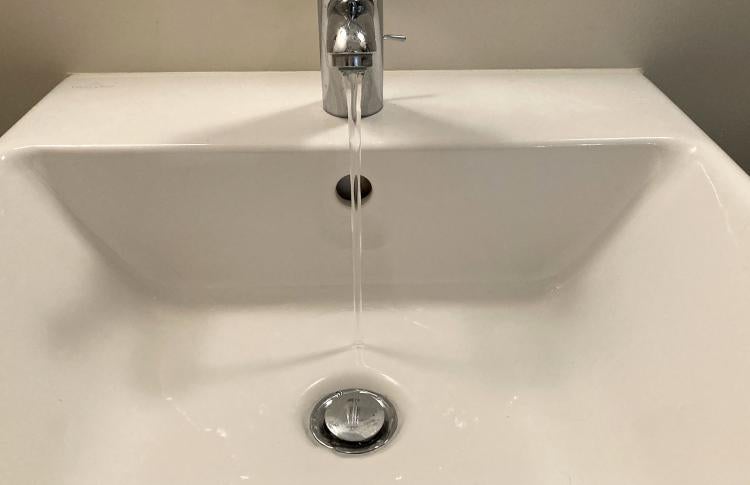
Regional Needs Assessment Identifies Water Issues Across Bay Area
The quality of drinking water, flooding, lack of access to adequate green space, contamination and pollutants, and trash are among the most urgent water-related concerns facing low-income and tribal populations around the nine-county Bay Area, according to the Regional Needs Assessment released today by the San Francisco Estuary Partnership. Led by members of disadvantaged and tribal communities, the report was developed through the Bay Area Integrated Regional Water Management Program’s Disadvantaged Communities and Tribal Involvement program, which is funded by the California Department of Water Resources.
Concerns about tap water quality were particularly noted across the Bay Area, a region typically known for its high-quality drinking water. Water worries from the perspective of residents in Antioch, Bay Point, Dillon Beach, East Oakland, East Palo Alto, East San Jose, Marin City, North Richmond, Petaluma, Pittsburg, Point Reyes, San Francisco’s Bayview Hunters Point neighborhood, San Rafael’s Canal District and South Vallejo are noted in the report, as are the needs of people experiencing homelessness, who have some of the least access to water, sanitation, and hygiene.
“This report sheds light on the systemic and pervasive nature of water quality and water management problems shared by disadvantaged and tribal communities throughout the Bay Area. People in these communities have identified and sought solutions to these problems for decades, but too often have been ignored or have had their problems minimized as isolated incidents,” says James Muller, manager for the Disadvantaged Communities and Tribal Involvement Program at the San Francisco Estuary Partnership.
The Regional Needs Assessment includes the findings of individual needs assessments conducted in 13 communities and five tribes and tribal organizations throughout the Bay Area, as well as in several locations where people are experiencing homelessness. The findings identify similar and pervasive problems shared by communities around the Bay Area. These problems fall under five intersecting categories: drinking water quality and affordability; flooding; industrial pollution and contamination; trash; and a lack of green space. Among the report’s findings:
- Drinking water quality in disadvantaged communities was identified as a top priority concern: For instance, 75% of needs assessment participants in Marin City and East Palo Alto responded they use bottled water for cooking and drinking. In many areas, participants expressed concern that the water quality in their area is worse than in neighboring, more affluent areas.
- Native tribes’ and disadvantaged communities’ water problems intersect and overlap with public health disparities. Many participants directly linked their concerns over different water issues to their personal health and the health of their communities.
The report contains many recommendations directly from the community and tribal partners about how to address water-related challenges and to make funding opportunities more accessible and equitable. Highlighted recommendations include:
- Projects to address these problems must be community-driven. The Regional Needs Assessment advises government agencies to devote the time and resources to build relationships and trust with tribes and disadvantaged communities, and to help these communities build the capacity to implement solutions.
- Work directly with people experiencing homelessness to understand where and which recommendations from the assessment will be most helpful in different locations, and to understand how these needs differ by living situation, demographics, and other factors.
- Funding is one of the most important tools that public agencies throughout California have to assist disadvantaged communities and tribes that for generations have been underfunded, underrepresented, oppressed and/or ignored.
- The assessment recommends a majority of future Integrated Regional Water Management dollars be directed toward tribes and disadvantaged communities, which traditionally have received just 10 percent of this funding.
The Regional Needs Assessment is intended to be a first step toward understanding and elevating water-related issues from the perspective of the Bay Area’s tribes and disadvantaged communities. Next steps will include following up on specific priorities identified in the Disadvantaged Community and Tribal sections of the report. Read the full report.
Hosted by the Association of Bay Area Governments (ABAG), the San Francisco Estuary Partnership is a collaboration of local, state and federal agencies; non-governmental organizations; and academic and business leaders working to protect and restore the San Francisco Bay-Delta Estuary.
Community partners who led the assessment may be contacted at the following phone numbers:
- All Positives Possible: Ladonna Williams, (707) 342-7186
- Contra Costa Resource Conservation District: Chris Lim, (925) 269-9190
- Brower Dellums Institute for Sustainable Policy Studies and Action: Robin Freeman, (510) 915-1452
- Friends of Sausal Creek: Anna Marie Schmidt, (510) 501-3672
- Greenaction: Bradley Angel, (415) 722-5270
- Marin City Climate Resilience and Health Justice: Ms. Terrie Green, (415) 336-6421
- Marin County Community Development Agency: Arti Kundu, (415) 473 7146
- The Multicultural Center of Marin: Marco Berger, (415) 960-5538
- Nuestra Casa: Kelly Hunt, (201) 401-5780
- Sonoma Ecology Center / Daily Acts: Brianna Schaefer, (707) 789-9664 / Tony Passantino, (707) 529-7493
- The Watershed Project: Anne Bremer, (510) 665-3430.
Tribal Partners who completed the Tribal Needs Assessment with the California Indian Environmental Alliance include:
- Amah Mutsun Tribal Band / Amah Mutsun Land Trust
- Association of Ramaytush Ohlone
- Him-r^n Ohlone, Jalquin, Saclan Tribe, Bay Miwok, Plains Miwok
- Muwékma Ohlone Tribe of the San Francisco Bay Area
- Napa Suscol Intertribal Council.

